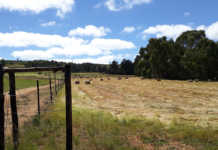I am not sure if he’s subconsciously insinuating that potentially, as claimants, we are not capable of ensuring our food security given a chance.
There is proof of land that was formerly productive, lying bare in our villages and this is an issue that is often raised to discredit the potential of the people who live near that land, without exploring their socio- and geopolitics.
How can he say colonisation is not to blame? Limiting the history of African colonisation to the arrival of the Dutch in South Africa is not inspiring, and putting African tribal politics in the same pot as European colonial endeavours should not be encouraged either.
Saying Africans colonised South Africa is comical. Everywhere you find the black man at the bottom of the food chain and this is no accident. Today, Europeans claim to be Africans but we all know that is mere window- dressing.
As we speak, it is hard for some Africans to be in South Africa because of childish and horrific xenophobic philosophies that do not include Europeans. This despite the land being grabbed by Europeans in Africa, who still control the majority of African resources.
Europeans instigated a situation that later created slave-on-slave violence in Africa and are now concerned that the ‘slave’ has adopted and enhanced the gruesome personality of the corrupt slave master.
Land is primary wealth and everything else is recycled wealth, but does the majority of this generation know how to work the land and have passion for it?
That is the main challenge – Africans across the world do not realise what they’ve lost. Since land was taken through trickery and political conquests driven by industrial aspirations, present-day politicians should not be discredited for trying to intervene and making things right.
They may not be succeeding yet, but the premise is sound and they need to be supported in mitigating their shortcomings.
I do not understand how you can say, “politically, commercial farmers are not a threat to government”. How is this possible when throughout history, economics have always been the main driver behind politics?
Land was taken in Africa by a greedy League of Nations that later fought over it. That needs to be rectified. It is the ‘how’ that is challenging because the people who need the land have lost the ability and passion to use it.
Working the land has been de-glorified through the culture-erosion concepts of European origin. We need agricultural perception engineers to work with popular culture engineers to portray agriculture as the ‘coolest’ thing in the world – but not at the expense of truth.








